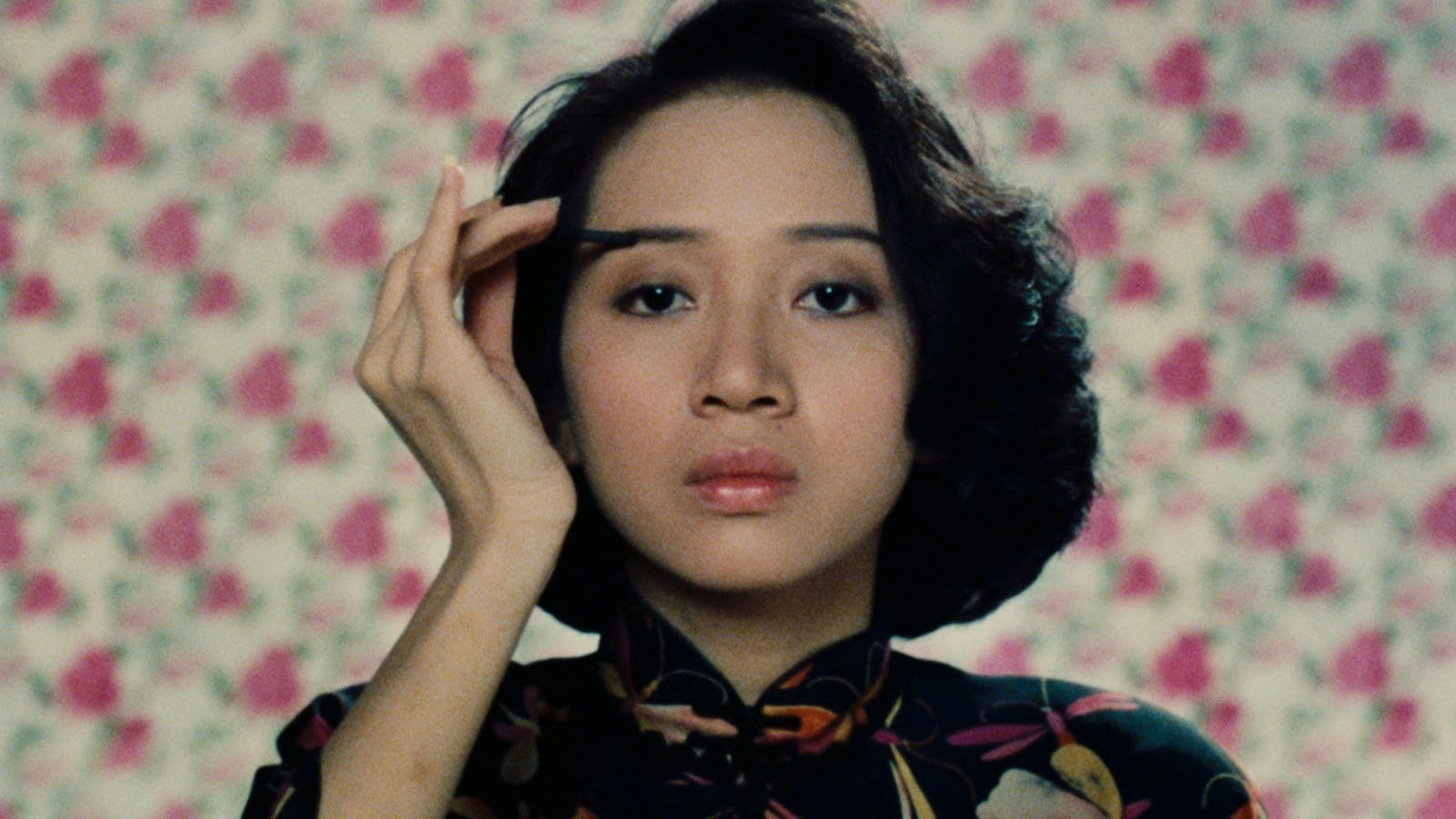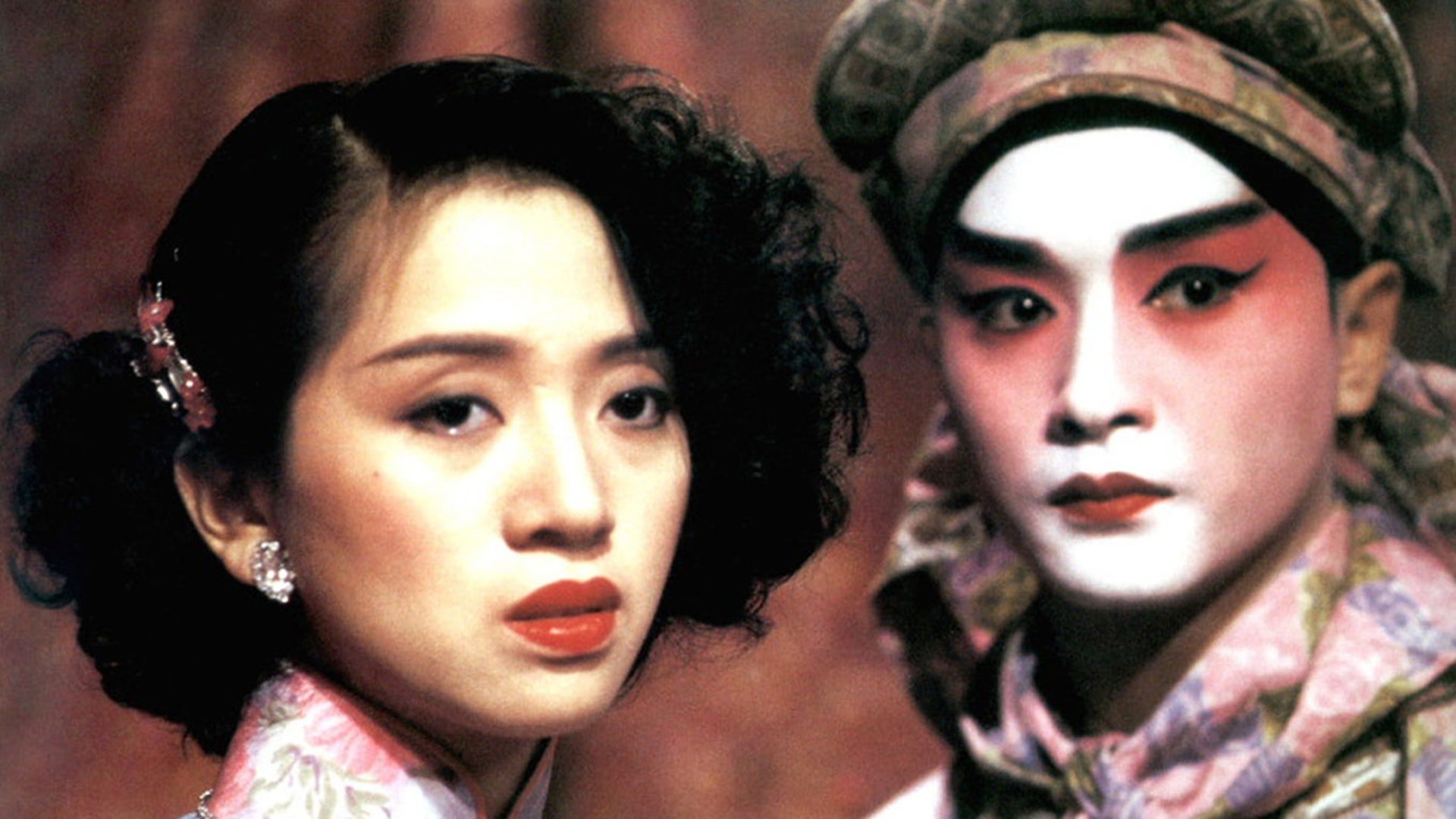Rouge: A Study of Hauntology and Nostalgia
Content Creator Phyllis Chan reflects on NTU Film Society’s recent film of discussion, Stanley Kwan’s Rouge (1987), through the lens of Derrida’s Hauntology.
After watching Stanley Kwan’s Rouge (1987) for the first time at 17, stills from the film continue to flash in my mind, and the ghostly image of Anita Mui on the upper deck of the iconic Hong Kong tram continues to haunt me. I never saw the film as a romance. Yes, it is romantic in some aspects, but for me, it has always been a supernatural drama of a lonely ghost trying to find her place in a complicated world outside of her understanding.
Rouge haunts right from its opening shots. As Anita stares into the camera, drawing on her eyebrows and pursing her lips on paper rouge, at that very moment, the audience becomes her mirror. As her mirror, we watch Anita’s character, Fleur, confront an image of herself, a woman frozen in time, no longer human but rendered an otherworldly spectre.
Rouge is a film rooted in “hauntology”. Initially proposed by the French philosopher Jacques Derrida, hauntology refers to the presence of a ghost or spirit as the personification of the sociocultural past. Haunted by her memories and desire to return to the past, Fleur roams around the nightscape of 80s Hong Kong, desperately searching for remnants of her past life — the brothels, fortune-telling, Cantonese opera, and most importantly, her lover. The names of the streets remain the same, but the warm, busy roads once filled with Tong Lau buildings have been entirely eradicated, replaced instead by the towering walls of cold concrete slabs. Cultural critic Mark Fisher suggests that “the future is always experienced as a haunting: as a virtuality that already impinges on the present”. Fleur becomes the liminal presence that lingers between the windows of past, present, and future. She is an interruption from the past into a future, the film calls the present. A ghostly manifestation of Chinese traditions and Hong Kong’s cultural Sinocentric past, she wanders the streets of a future that she struggles to comprehend.
As we watch Fleur roam the streets of 80s Hong Kong, the audience realises that remnants of the past still linger in its liminal spaces. The fortune-teller runs his booth in a dingy corner surrounded by hawker stores. Cantonese opera actors sing along the roadside on a makeshift stage, no longer housed within the walls of a grandiose theatre. Fleur’s desperate search for her lover, the Twelfth Master, only results in her finding him in an isolated corner of a movie set, as an impoverished old movie extra, with not a single trace of his former wealth and charisma. Though she once lived a prodigious lifestyle, where men clamoured just to come close to her presence; in the present, any trace of her existence has been rendered to a mere few words of an old gossip paper hidden between the wedges of an antique store. The liminality of the elements of Fleur’s past mirrors her status as a ghost. Both are transient and, in some sense, “stuck”. The past is not wholly removed from the present, and their survival depends on the lived memory and nostalgia of others, which poses the question: What would happen to the fortune-teller and Cantonese Opera actors when their audience passes on? There is no future in nostalgia, and change is inevitable. Though traces of Fleur’s past exist in the 80s, it is only a matter of time before it is lost to oblivion.
Contrasting Fleur, are the contemporary characters, Yuen (Alex Man) and Ah Chor (Emily Chu), who decide to help Fleur in her quest to locate the Twelfth Master, actively scavenging through archives and antique stores. Though they do so out of goodwill, there is an underlying selfishness underscored by their desire to uncover Fleur’s story. As Fisher suggests, hauntology is “the proper temporal mode for a history made up of gaps, erased names and sudden abductions”. They yearn to know more about her, as Fleur is an avenue into the past, an opportunity for them to unveil an unseen history — the flowery life of a courtesan in the glamorous 30s.
Fleur plays as a spectre of the past, literally and figuratively haunting them. Yuen and Ah Chor are both apprehensive of Fleur’s existence yet transfixed by her elegance and extravagance. They both admire Fleur’s life of drama and sacrificial romance. Compared to her, Yuen and Ah Chor’s lives seem mundane and ordinary. But they seek satisfaction in that — none of them desire to relive the melodramatic lives of the Twelfth Master and Fleur. They both learn from the past mistakes of their spiritual predecessors and choose to contend with the present.
With Hong Kong cinema of the 80s and 90s gaining a recent growing following who are captivated by the aesthetics of neon lights and green-tints, Rouge becomes an interesting film about lost memories. Fleur’s presence serves as a warning for her nostalgic-filled audience to not view the past through rose-coloured glasses and be too enraptured with it. Rouge is a time capsule and love letter to Hong Kong, paying homage to both the 30s and 80s, continuing to haunt and mesmerize its audiences till the end of time.
You can reach out to phyllis through her instagram here.

